
Sponsored By: Sanebox
Today's essay is brought to you by SaneBox, the AI email assistant that helps you focus on crucial messages, saving you 3-4 hours every week.
It must be a nightmare to become a Kindle product manager.
You show up on the first day of work ready to reinvent the most important advancement in human intellectual history—the book. You sit down at your desk. You notice it is not a desk but is instead a blue door turned horizontal and stacked between filing cabinets.
I don’t mind the desk door, you tell yourself. I am here to reinvent the book.
The book! THE BOOK! The vehicle of every important event and person in recorded history from Moses, to Jesus. From Aristotle, to Aquinas. From Newton, to Shakespeare. From William James to E. L. James.
You pull out the prep you did for your first day and lay it out on the desk-door in front of you.
You have drawings and diagrams. You have charts and graphs. You have case studies and research notes and prototypes out the wazoo.
You have rethought highlighting and search. Evernote and Notion and Roam will flee your wrath—for you have solved the problem of remembering what you read. You have single-handedly smote SparkNotes with an AI-based summarizing tool. You have created new collaboration features (everyone needs new collaboration features.)
You even have a memo prepared. An internal press release outlining the next-generation Kindle you’ve so lovingly envisioned. In true Amazon style, it is—dare you say it—customer obsessed. It compacts your genius into just a few lines of black-and-white text.
You send the memo to your boss and stretch with satisfaction. As you wait for a response, you scroll through Twitter mindlessly. You briefly register a news story about Jeff Bezos partying in Mallorca on a yacht emblazoned with the likeness of his busty beau. You don’t mind. You are a god-emperor of the knowledge economy. You will change the lives of tech bros and BookTok types alike.
Imagine having an AI assistant sort your inbox for optimum productivity. That's SaneBox - it filters emails using smart algorithms, helping you tackle crucial messages first. Say goodbye to distractions with features like auto-reply tracking, one-click unsubscribing, and do-not-disturb mode.
SaneBox works seamlessly across devices and clients, maintaining privacy by only reading headers. Experience the true work-life balance as SaneBox users save an average of 3-4 hours weekly. Elevate your email game with SaneBox's secure and high-performing solution - perfect for Office 365 and backed by a 43% trial conversion rate.
Your boss walks in. You expect exaltation. But he looks…concerned. Maybe slightly resigned. He motions for you to get up and you follow him. He indicates for you to bring your drawings, diagrams, and your precious memo along with you. He walks you to a strange room. White walls and a white floor. A long stainless steel table sits in the center of the room. On top of the table is every single version of the Kindle Amazon has ever produced. This is the cathedral of the Kindle. The citadel of cybertext. Sanctuary of stories. Holy ground.
He walks you to the left side of the table. Here sits the first-generation Amazon Kindle. Released in 2007 at a $399 price point. It sold out in 5 hours.
He walks you to the right-hand side of the table. You pass each successive generation of Kindle as you walk. 20 years of work. You notice the first model to be released without a physical keyboard. You notice the displays getting larger, and the cases getting smaller. Tiny improvements. Sustaining innovations. Management by committee. Inch by inch. Exactly what you have sworn to change.
Finally, you arrive at the 11th Generation Kindle: the Paperwhite. Waterproof. Easy on the eyes. $139:
“Notice anything?” Your boss says.
“They’re all pretty similar,” you reply. “And that’s why I think we could totally blow the doors off this thing if—”
Your boss raises his hand for silence.
“Your job is to do as little as possible,” he says. “Twiddle some knobs. Make it thinner. Make the battery better. But for the love of god don’t try to reinvent anything.”
He takes your drawings and diagrams out of your hands. He picks up the memo too. He carries them over to a chute labeled, “Incinerator.” He tosses them in the chute. You hear them clang to their fiery death somewhere deep in the bowels of Amazon headquarters.
“The Kindle’s job is to be boring and invisible. Now act like a Kindle and get out of my face.”
. . .
The Kindle could be 10x better than it is.
But, as far as I can tell, Amazon doesn’t seem to be moving very fast to improve it. This is not a good state of affairs. Reading books, in my opinion, is one of the most pleasurable, enriching, and interesting activities humans engage in. It sucks that in the age of AI, books seem to be getting left behind.
So this week I decided to set myself a little challenge: What would happen if we set fire to the Kindle?
I decided to pretend I was a Kindle product manager. I came up with a few grand dreams for the future of reading that are totally divorced from the corporate and practical reality of working at Amazon. Consider it a call to arms for the future of books. A rallying cry to make the Kindle actually great.
To start, let’s look at what Kindle is good at today and build features from there.
The Kindle’s most useful feature
In my opinion, the most useful feature of the Kindle is the dictionary. If you read a word that you don’t know, all you have to do is long-press on the word to highlight it and the definition pops up:
This feature is genius because it takes a complex action—asking for the definition of a word—and makes it available via one long press. It does this based on context: if you long-pressed on a word it knows you’re probably asking about a definition. This is great because you can do this interaction easily without interrupting your reading experience.Over the last decade, Amazon improved this by adding what they call X-Ray to Kindle books. If you long-press on a person, a place, or a thing on Kindle—instead of providing a dictionary definition—it will provide the snippet of text where that person, place, or thing first shows up in what you’re reading.
For example, if I highlight the character Portia in a book I’m reading, Children of Time, here’s what X-Ray gives me:
In theory, this is quite nice because it makes it much easier to keep track of who the characters are in books. But, in practice, this is quite bad because the system is very stupid.As you can see above, the snippet X-Ray is showing me doesn’t actually tell me who Portia is. I’d actually have to go reread that part of the book to get a better sense of what’s going on. That takes time and moves me out of the reading experience.
AI can already change this significantly. An X-Ray feature equipped with it could search for every mention of Portia in preceding sections of the book, and then output a summary of what it finds:
That’s where this starts, but it’s not where it ends. I think this whole idea of long-press + context = magic could be expanded greatly in the Kindle (or any other reading experience) to enrich the range of questions that can be asked and answered about a text without interrupting the reading experience.Let me show you what I mean.
“How did we get here?” AI can answer.
Everyone reads in fits and starts. Sometimes I’ll tear through 50 pages of a book and then put it down for a week. When I come back I often have to think to myself, How did we even get here?
Once I’m asking that question there’s a good chance I’ll stop reading altogether. It’s just too much cognitive load to try to remember everything, or to go back and reread sections to catch myself up.
AI can solve this. If the Kindle detects you’ve been away from a book for a while it could automatically pop up with a summary of what’s happened so far. Or, if you long-press on a chapter heading it caught do the same thing.
For example, I was recently re-reading East of Eden by John Steinbeck. After a long layoff from the book I popped back in at Chapter 10 and here’s what I saw:
This is confusing as hell! It’s a wall of text that’s hard to parse if you can’t remember its context. It took me some time to recall what had happened in the last chapter, who Adam Trask was, who his brothers are, and who Cyrus is. AI could automatically generate this for me:(This summary was entirely generated by prompting GPT-4)Auto-generated summaries like this could help people get back into books they’ve put down. They could also help us understand the significance of important events in a story.
“What’s the significance of this?” AI can tell us.
I’m often reading a book where the character does or says something that feels meaningful, but I can’t fully explain why. Or maybe I can explain why, but I want to know more. Why is it written that way? What is the author really trying to say?
Right now, I have to Google for that (or ask ChatGPT). But what if I could just long-press on a highlighted sentence or paragraph and get a good explanation?
For example, consider this passage from East of Eden by John Steinbeck. In it, a key character Lee, is talking about how he gets through his demanding days as a cook and housekeeper:
The language here is beautiful and it’s pretty clear what Steinbeck is trying to say. But one sentence in particular sticks out to me: “[The human soul] is always attacked and never destroyed—because ‘Thou mayest.’” What does that mean?I have some idea, but I’m curious to know more. How is the human soul always attacked and never destroyed? And what does it have to do with the phrase, “Thou mayest.”
Well, AI can help me understand:
(This answer was entirely generated by prompting GPT-4)
This answer is pretty good! It helps me connect the dots and affirms my basic understanding of the passage. To be sure, it could be improved as well. A better version would 1) be less definitive and 2) cite existing scholarship and historical evidence for its claims.
But even without that—it’s already a pretty handy starting point for anyone looking to get a quick answer.
Its usefulness isn’t limited to just fiction, though. It could also be incredibly helpful for non-fiction.
“Is this actually true?” AI can answer.
When we read non-fiction books we tend to leave suspicion at the door. We assume the best of the authors and editors that collaborate to put together a book. But sometimes books are wrong.
Sometimes books are wrong because they’re out of date. Our understanding of the world moves quickly, and it’s hard to know if what you’re reading reflects the latest scholarship.
Sometimes books are not totally wrong, they’re just making claims that don’t fit the current scientific consensus, or that are based on studies that are of dubious value.
This is okay–but I find myself craving something to give me a sense of the consensus truth value of what I’m reading. For example, I was recently reading a book called Brain Lock where the author argues that there must be one single answer that underlies all instances of depression. It would have been nice to have something marking that section as controversial:
You could even imagine this working not just based on the prevailing scientific consensus, but by customizing the algorithm to reflect the views of different people you trust. For example, it might be able to reflect what Andrew Huberman might say about this passage.An enriched reading experience that takes a book from being an inert reflection of the author’s viewpoint at a single time period and turns it into a living document would be extremely useful.
So…should all books just become chatbots?
We’ve been thinking a lot about the future of reading in Every this week. On Tuesday, we published an excellent article by Matthew Guay arguing that AI chatbots are the future evolution of the e-book format. This way of looking at things sees the core job-to-be-done of a book as efficient knowledge storage and retrieval. It argues that the ability to have a conversation with a writer through an AI chatbot is a much more efficient format for that job than slogging through a book they’ve written.
I think Matthew is probably right: building incredible chat experiences based on the personalities and worldviews of famous writers is a huge opportunity. As I’ve written previously, chat bots are a new content format. It’s entirely possible that we’ll spend a lot of time chatting with these kinds of bots over the next 10 years. But I actually don’t think these experiences will replace books. They’re different formats, with different requirements.
A key requirement of a book is the ability to read it end-to-end without having to do anything more than turn the page. It’s something you want to do on your couch with a cup of coffee beside you. It’s awkward and uninviting to have to switch back and forth between reading and typing—which is what chatbots integrated into books will force you to do.
That’s why I think it’s better to integrate AI in ways that enrich the experience of reading books without changing your consumption pattern. That’s what I’ve tried to do with the mockups in this article, and we’ve only really scratched the surface of what’s possible.
The exciting thing is, there are already people trying to do this. For example, Readwise’s Reader product allows you to send a highlighted passage to AI and get back a summary, an explanation, a TLDR, and more:
I think this feature is going in exactly the right direction: allow me to get more out of my book without taking me out of the book—or forcing me to use a keyboard.Hopefully there’s someone at Amazon who’s reading this and taking notes. Please for the love of all that is holy, put features like this into the Kindle.
And if you want a bright-eyed, bushy-tailed book nerd to give you a few ideas…give me a call some time?
Haha just kidding…
Unless?
The Only Subscription
You Need to
Stay at the
Edge of AI
The essential toolkit for those shaping the future
"This might be the best value you
can get from an AI subscription."
- Jay S.
Join 100,000+ leaders, builders, and innovators

Email address
Already have an account? Sign in
What is included in a subscription?
Daily insights from AI pioneers + early access to powerful AI tools

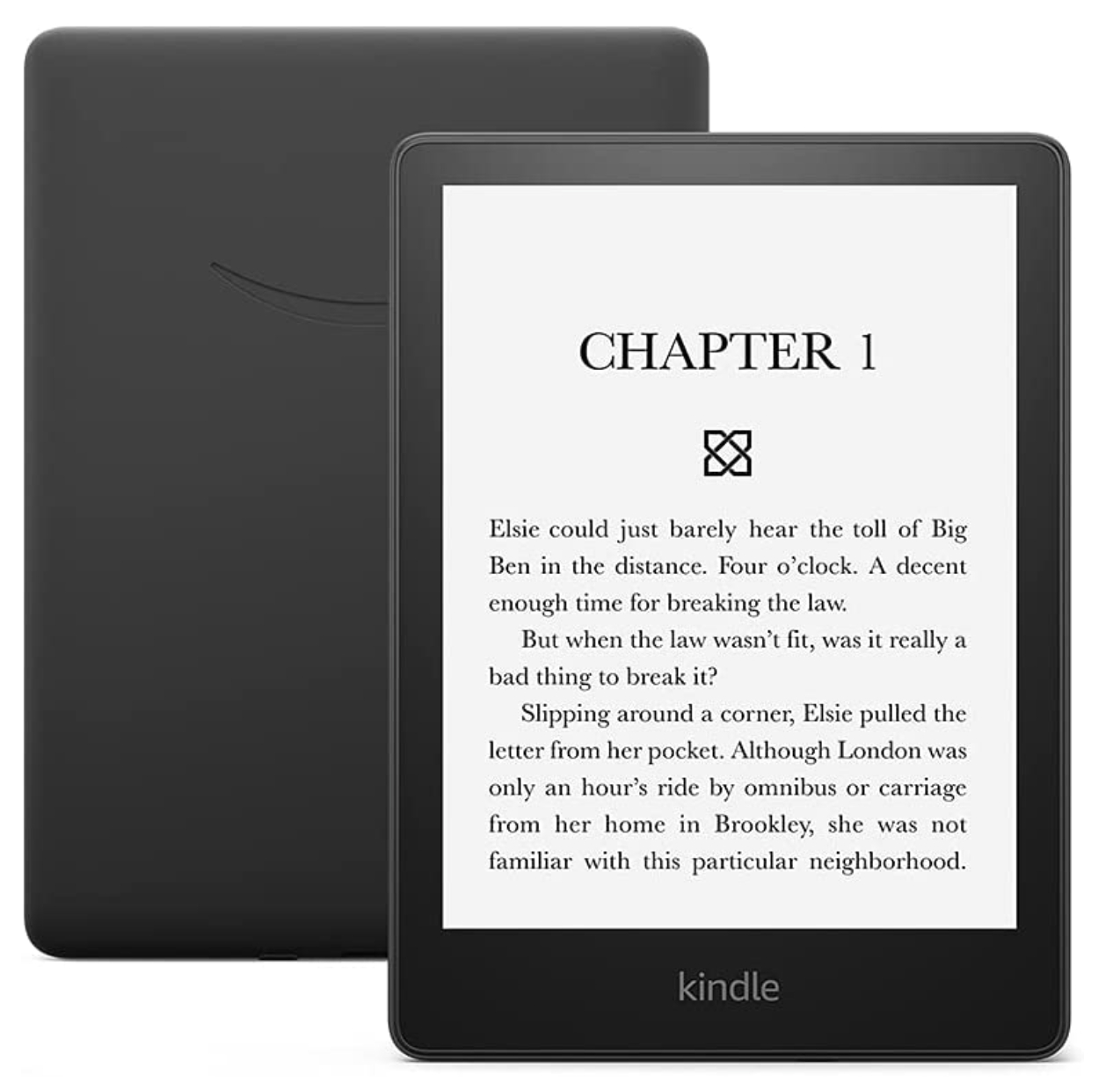
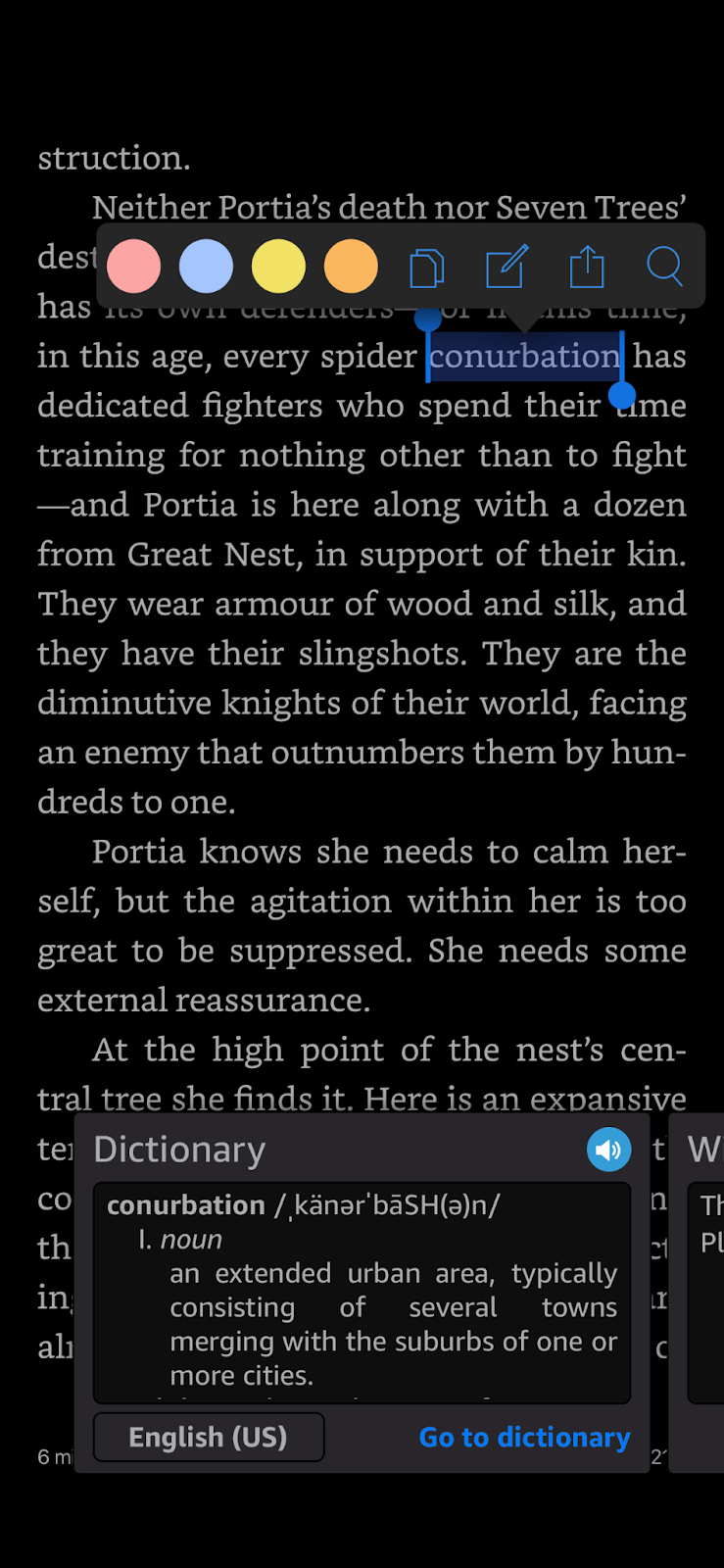

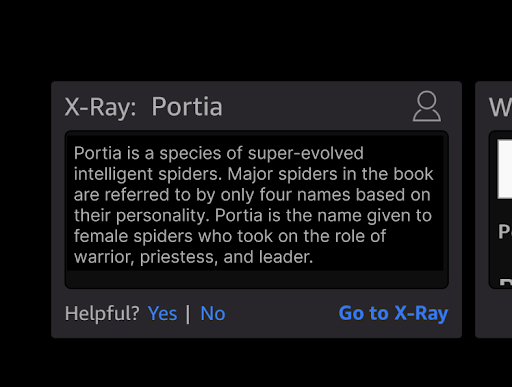
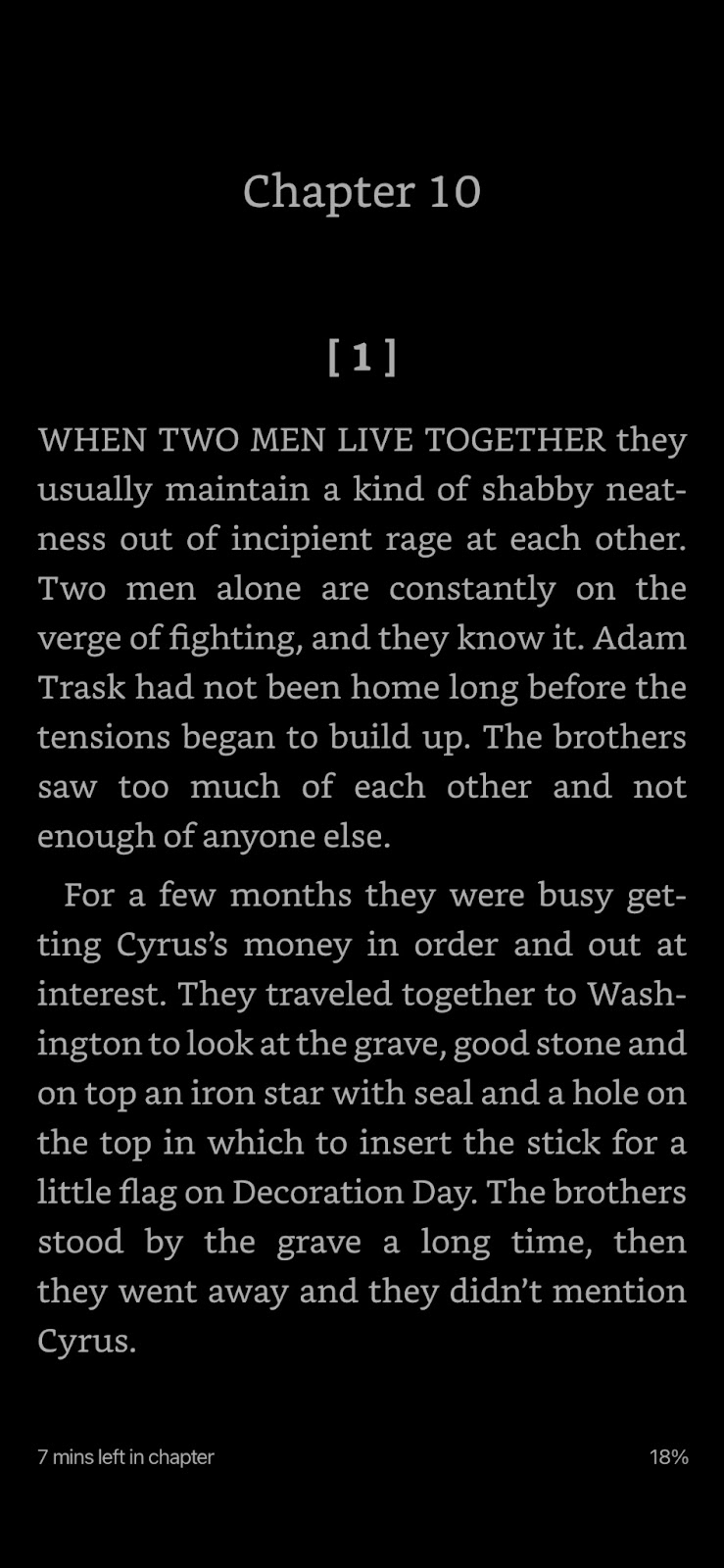
.png)
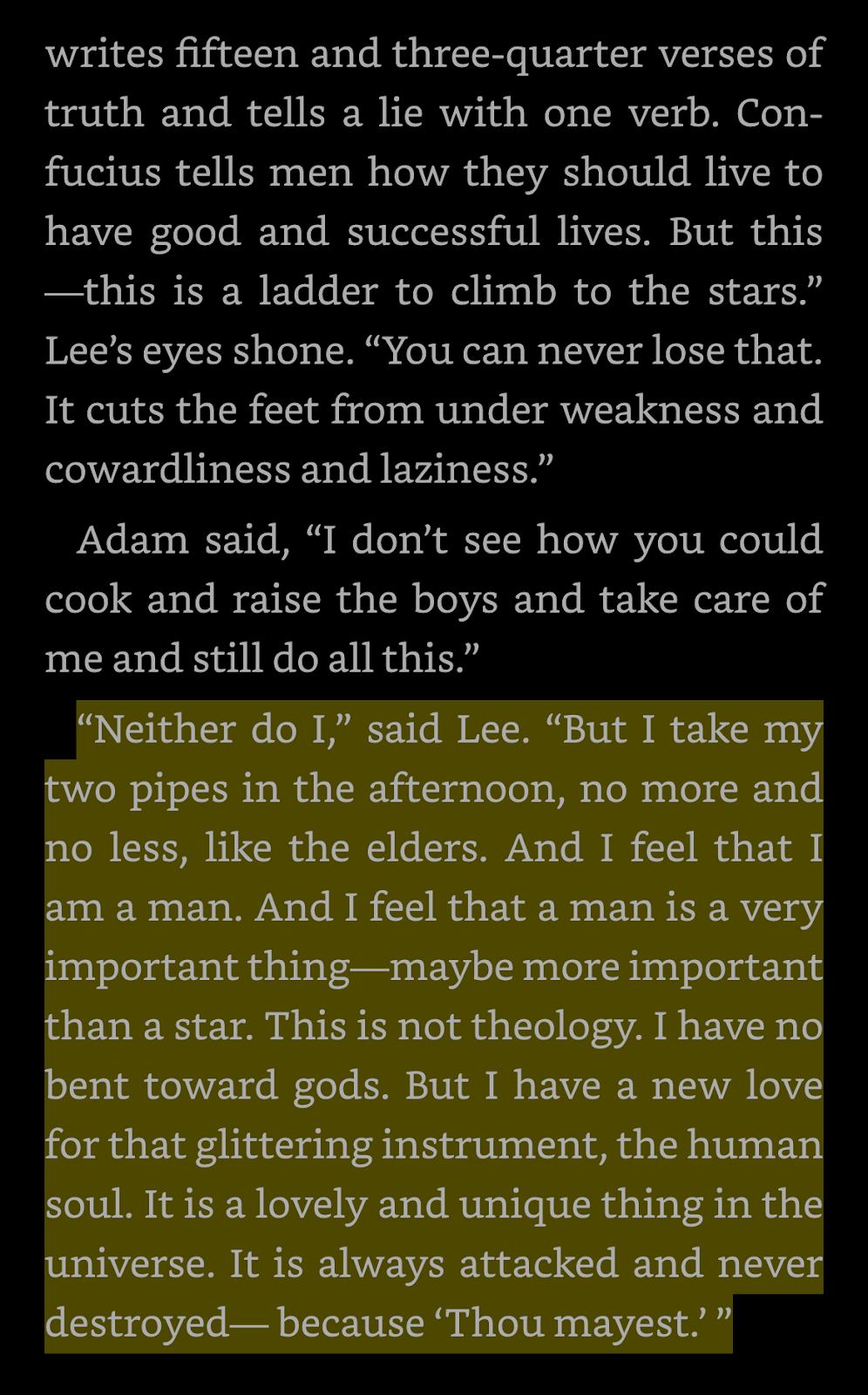

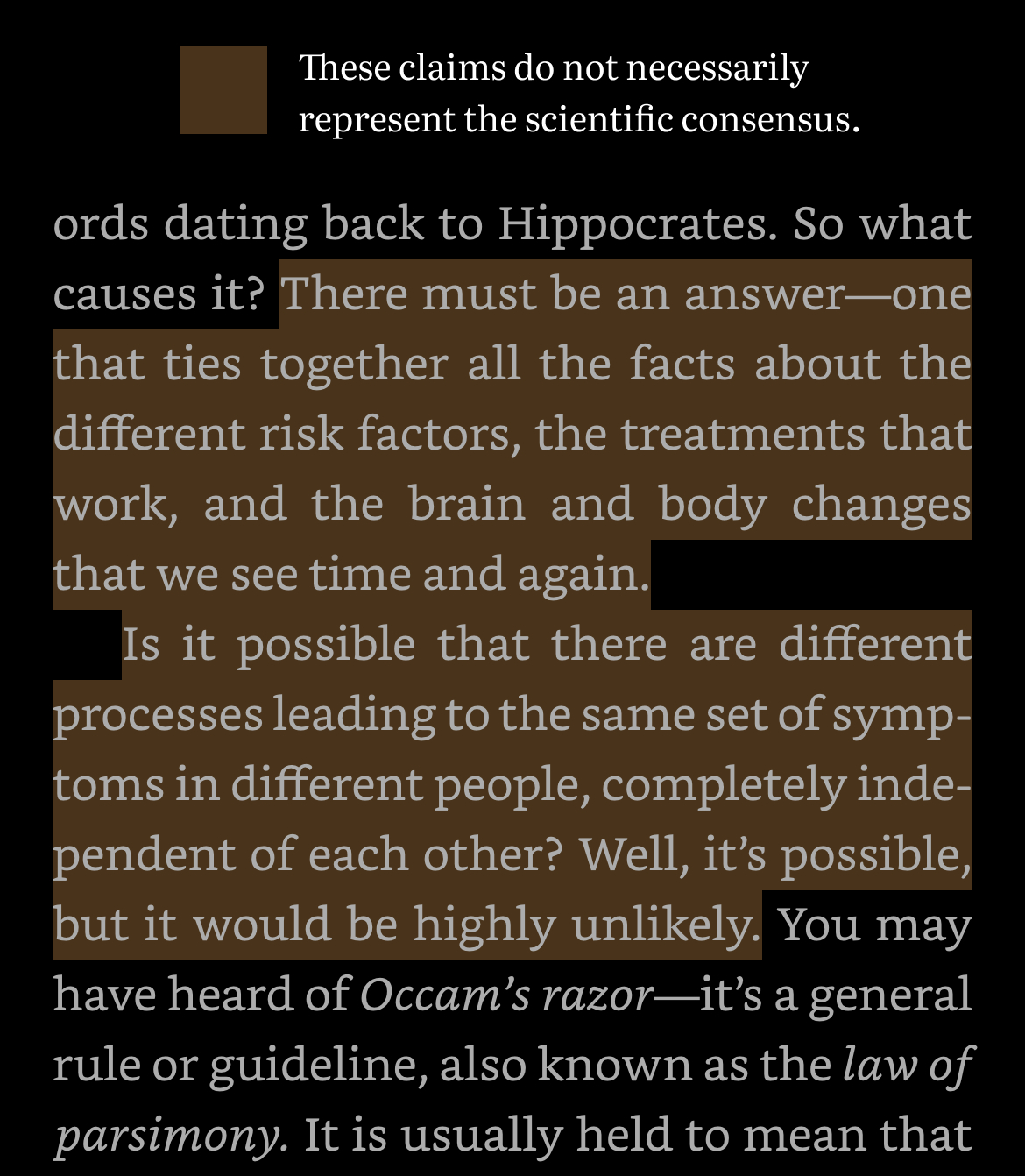
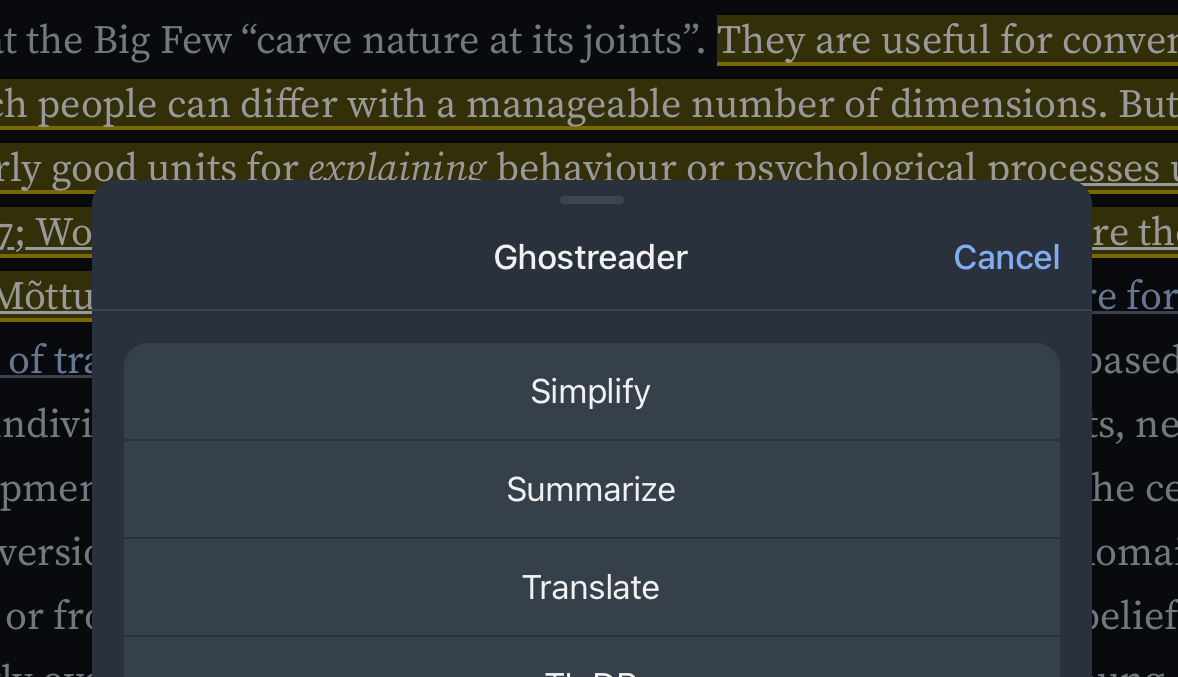










Comments
Don't have an account? Sign up!